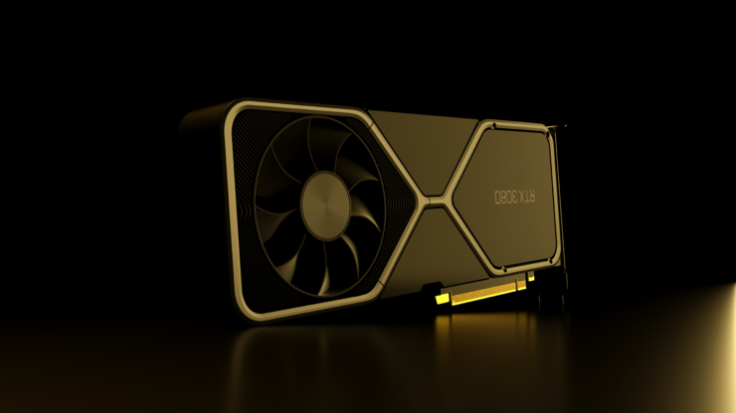As RTX 3080 buyers started complaining about the card's technical faults that led to crashing and graphical artifacts while gaming, several tech YouTubers and forums began an investigation of the issue. The investigation led to the discovery of cheap capacitors used on most third party cards. It was also reported that the cards started acting weirdly upon hitting the 2.0 GHz boost clock speeds. Naturally, buyers were awaiting an official response from Nvidia on the matter, and today the GPU giant has offered some answers.
According to Nvidia, the issue isn't necessarily the choice of capacitors. However, that has left fans more confused since other Nvidia partners like EVGA has confirmed that it is, in fact, the use of cheap capacitors that is causing the crashes. EVGA stated that the use of cheaper SP-CAP prevented the GPU to "pass the real world applications testing." This is why the company had to delay its EVGA GeForce RTX 3080 FTW3 GPUs.
From Nvidia: "Regarding partner board designs, our partners regularly customize their designs and we work closely with them in the process. The appropriate number of POSCAP vs. MLCC groupings can vary depending on the design and is not necessarily indicative of quality."
— Brad Chacos ⌨️?? (@BradChacos) September 28, 2020
Several tests conducted by YouTubers and other PC hardware websites have stated that the issue manifests when cheaper capacitors are pushed to perform heavy tasks. In response to the ongoing issue, Nvidia released a new driver earlier today which seems to stabilize the RTX 3080 GPUs. However, it has been noted that the new driver seems to lower the GPU's boost clock, which could result in some performance sacrifice.
However, users who bought the Founders Edition of the RTX 3080 GPU are not affected by this issue. It is surprising to see that third party manufacturers decided to go with cheaper components on the flagship GPU, but from a third party manufacturer's viewpoint, it does help in keeping the cost low.
Nvidia's RTX 3080 reveal was received very positively, leaving fans extremely surprised. It's sad to see that the actual launch itself hasn't been quite as successful. Nevertheless, this is also a sign that AMD should take things seriously and ensure that the RX 6000 GPUs don't suffer the same fate.













![[EG April 19] Best 'Stardew Valley' Mods That Will Change](https://d.player.one/en/full/226012/eg-april-19-best-stardew-valley-mods-that-will-change.png?w=380&h=275&f=955520b8313253ee3c39c791f6210f38)



